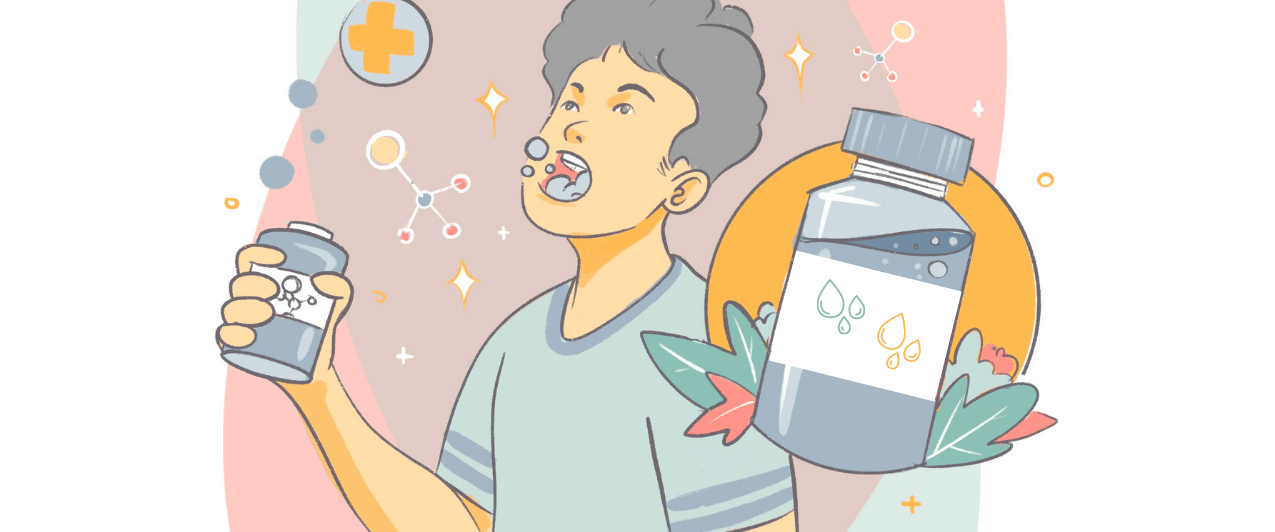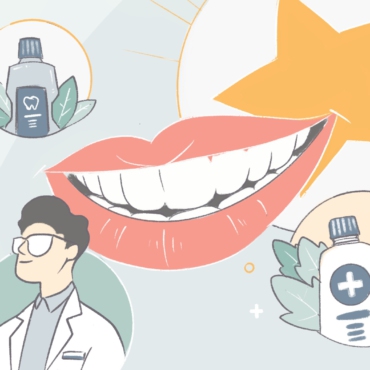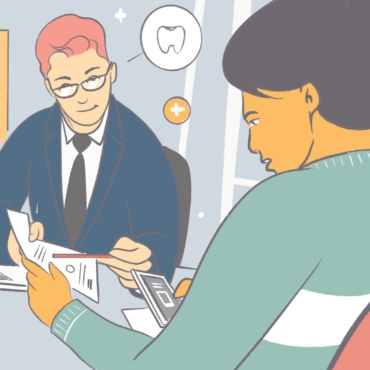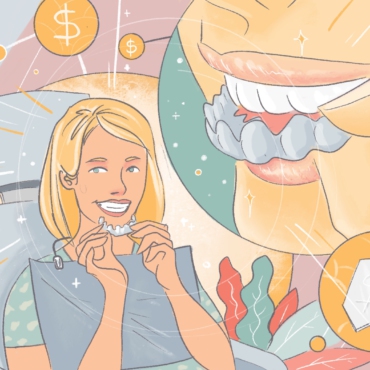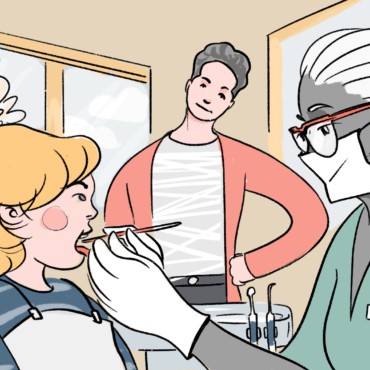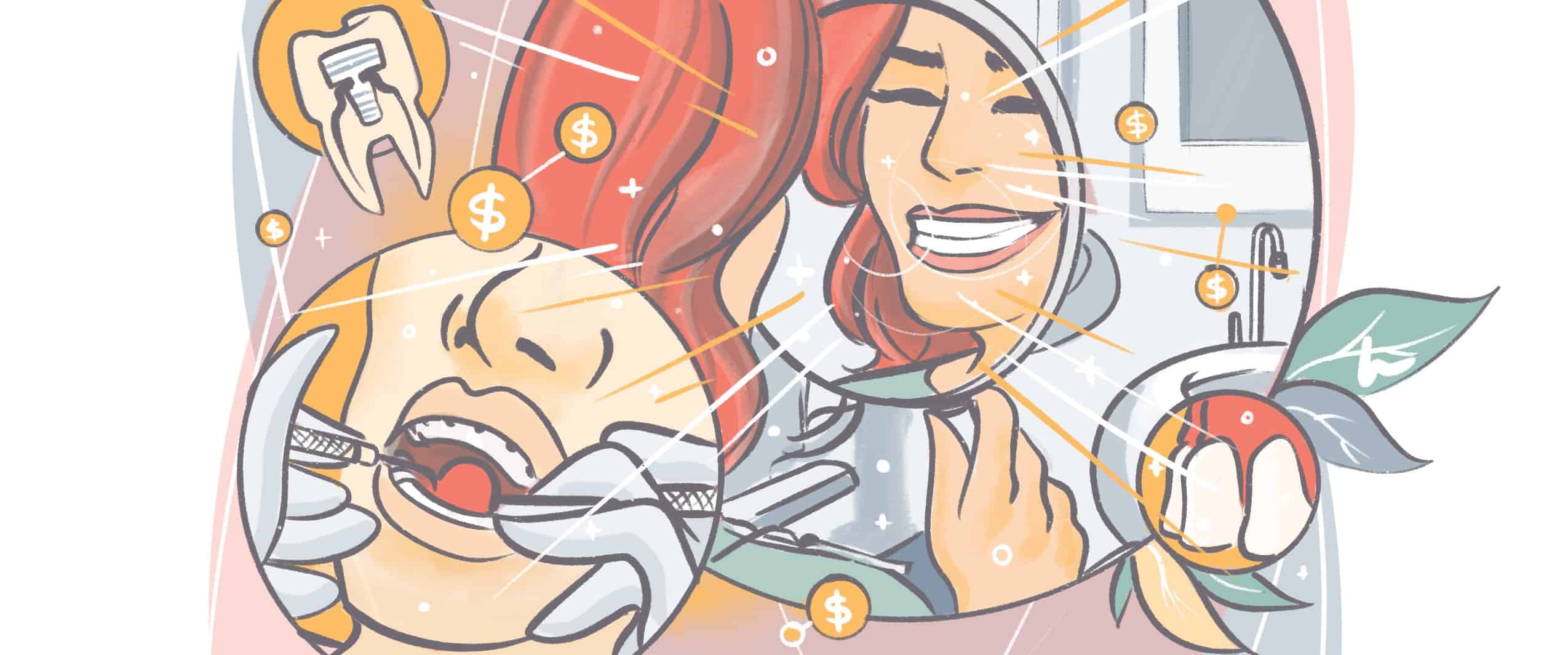Do you find yourself constantly waking up with a dry mouth? You are suffering from xerostomia.
Don’t worry, that strange word doesn’t represent some obscure condition that has no known cure. It simply is the medical term for dry mouth. And there are several home remedies and medical interventions you can use to help prevent and treat it.
What is dry mouth?
Dry mouth is exactly what it sounds like. Your salivary glands aren’t putting their 100% into their jobs and aren’t producing enough saliva to properly wet your mouth.
Why is a wet mouth necessary? Well, aside from being kinda gross, saliva plays several important roles in your mouth. Its presence helps kill off harmful bacteria and keep your mouth clean. When you eat, it also begins the digestion process and helps your body break down food.
If you spend a lot of time without enough saliva in your mouth, your overall oral health begins to suffer. Without the bacteria-fighting superpower of your saliva it is even more important to keep up on your oral hygiene. Floss and brush twice a day to keep a fresh mouth. Otherwise you may begin to experience problems such as gum disease and tooth decay.
You may also experience other uncomfortable symptoms such as:
- Dry throat or burning sensation in the throat or mouth
- Dry nose and nasal passages
- Trouble swallowing
- Hoarseness and difficulty speaking
Why is my mouth so dry when I wake up?
There are a few reasons why you might experience dry mouth. Some of the causes are avoidable; others are not. However, there are many ways to alleviate dry mouth, which we’ll discuss below.
Mouth breathing
Approximately 45% of people snore occasionally. About 25% of people snore regularly and enough to disturb a lucky partner’s or even their own sleep.
Furthermore, about 22 million Americans suffer from sleep apnea, a condition in which people stop breathing for short periods while asleep. Many people don’t wake up enough to realize they have this condition, which can lead to health problems when left untreated.
Many people who snore or have sleep apnea breathe through their mouths instead of their noses. Mouth breathing can also happen out of habit or simply because your nose is stuffed up.
If you typically experience dry mouth in the mornings, this may be the culprit for your discomfort. Find a dentist who can fit you for an oral appliance that you can wear at night to help prevent you from sleeping with your mouth open.
Medications
Dry mouth is a side effect of many types of medication – both prescription and common over-the-counter medications. Unfortunately, many medications for chronic health conditions have this side effect. A few common examples include:
- High-blood-pressure medication
- Antihistamines
- Decongestants
- Antidepressants and other medications for mental health issues
- Parkinson’s disease medication
As you can see, many of these medications you can’t simply stop taking because you are experiencing dry mouth. Be sure your dentist is aware of any medications you take and talk to your doctor about serious issues with dry mouth. They may be able to prescribe a different medication that won’t lead to so much dryness.
Diseases
Dry mouth can also be a symptom of various medical conditions. For people with diabetes, frequent dehydration or high blood sugar levels can lead to dry mouth. Also, some diabetes medications can cause dry mouth.
Chemotherapy can cause dry mouth either immediately or months or even years later. Localized cancer treatments for head and neck cancers can cause permanent damage to the salivary glands and result in chronic dry mouth.
Sjögren’s syndrome is a little known autoimmune disorder that primarily affects women who have already experience menopause. The disease affects the connective tissues near your mouth and eyes and dry mouth is a primary symptom.
People who suffer from Alzheimer’s disease often have trouble remembering to drink enough water. Dry mouth is a side effect of frequent dehydration.
Aging
Aging seems to be the culprit for a lot of issues and dry mouth is no different. Approximately 30% of people over 65 suffer from xerostomia and that number jumps to 40% of people over 80.
Alcohol and tobacco use
Here’s yet another reason to avoid using tobacco and drinking an excessive amount of alcohol. Aside from hangovers, discolored teeth, and bad breath, you can also suffer from dry mouth.
Alcohol is both dehydrating and acidic, both factors that can dry up your mouth. Even alcohol-based mouthwashes can have a negative effect.
Tobacco affects your saliva production and is a contributing factor to a number of oral health problems. Case in point, a whopping 39% of smokers experience dry mouth in comparison to only 12% of nonsmokers.
Due for a checkup?
Find a top rated dentist near you that takes your insurance.
Recreational drug use
Using tobacco isn’t the only thing that can affect your salivary flow rate. Methamphetamines cause the famous and thoroughly disgusting “meth mouth,” which includes dry mouth symptoms. But meth isn’t the only drug to watch out for. Other drugs, such as heroin and ecstasy can cause serious issues as well.
How can I prevent dry mouth while sleeping?
Aside from being uncomfortable, dry mouth can have some serious medical consequences if it is a chronic problem. You may experience a decreased sense of taste and have a hard time getting the right nutrition.
You can also begin to experience dental problems, such as gum disease and cavities. If you don’t address these problems, you can even end up losing teeth! If you experience dry mouth frequently, we definitely recommend booking regular dentist appointments to keep that beautiful smile intact.
Your doctor or dentist may also prescribe or advise the use of certain products to help alleviate your dry mouth. These include:
- Special toothpaste
- Non-drying mouthwash
- Topical gel
- Oral medication
- Nasal or mouth spray
- Fluoride treatments
Don’t have a healthcare professional on speed dial? Find a dentist near you who can offer you the best medical advice for your dry mouth issues.
Home remedies for dry mouth at night
There are also a few practical home remedies you can do to prevent dry mouth while sleeping.
- Drink plenty of water to prevent dehydration
- Suck on ice chips
- Suck on sugarless candies
- Don’t drink alcohol
- Use an alcohol-free mouthwash
- Avoid drinking caffeine before bed
- Drink water with meals
- Chew thoroughly before swallowing
- Brush your teeth twice a day
- Chew sugar-free gum
- Put a cold air humidifier in your bedroom
Is dry mouth a sign of diabetes?
Anyone can be affected by dry mouth. However, waking up with dry mouth is a common symptom of type 1 and type 2 diabetes. The exact reason is unknown, but higher blood sugar levels can cause dry mouth. Also, so medications used to treat type 1 or type 2 diabetes are known to cause dry mouth as a side effect.
How often should I visit the dentist with dry mouth?
Unfortunately, people who suffer dry mouth are at higher risk of tooth decay and gum disease. It is really important to visit the dentist at least twice per year to catch and prevent oral diseases before they develop.
Still need answers?
Book with a top-rated dentist in your city to get the treatment you need.
Living life with a moist mouth
In some cases, you won’t be able to get rid of the root cause of your dry mouth problem. For example, if you have an autoimmune disease or need to take a medication that causes mouth dryness. However, these practical tips that we’ve offered will help you cut down on the problem.
It is also extremely important to keep up on your oral hygiene. Brush and floss daily and visit your dentist twice a year.
Don’t have a dentist that you love? We can help! As always, our goal is to help you level up your oral wellness in any way we can!

